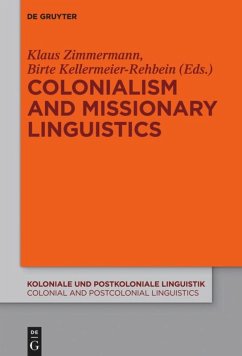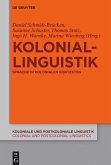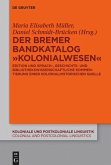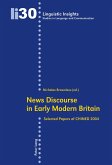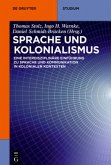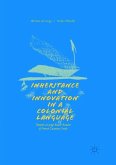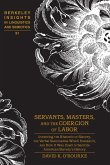A lot of what we know about â??exotic languagesâ? is owed to the linguistic activities of missionaries. They had the languages put into writing, described their grammar and lexicon, and worked towards a standardization, which often came with Eurocentric manipulation. Colonial missionary work as intellectual (religious) conquest formed part of the Europeans' political colonial rule, although it sometimes went against the specific objectives of the official administration. In most cases, it did not help to stop (or even reinforced) the displacement and discrimination of those languages, despite oftentimes providing their very first (sometimes remarkable, sometimes incorrect) descriptions.
This volume presents exemplary studies on Catholic and Protestant missionary linguistics, in the framework of the respective colonial situation and policies under Spanish, German, or British rule. The contributions cover colonial contexts in Latin America, Africa, and Asia across the centuries. They demonstrate how missionaries dealing with linguistic analyses and descriptions cooperated with colonial institutions and how their linguistic knowledge contributed to European domination.
Ein Großteil des Wissens über "exotische" Sprachen verdanken wir den linguistischen Aktivitäten der Missionare. Ihr Beitrag belief sich v.a. auf die Verschriftlichung, die Beschreibung der Grammatik und Lexik sowie auf die Standardisierung, was in manchen Fällen mit einer eurozentristischen Manipulation der beschriebenen Sprachen einherging. Insgesamt war die koloniale Missionierung als geistige (religiöse) Eroberung Teil der politischen Kolonialherrschaft, auch wenn sie manchmal im Widerstreit zur Kolonialverwaltung stand. Die Verdrängung und Diskriminierung der Sprachen hat sie jedenfalls, trotz der meistens ersten, z.T. bewundernswerten, z.T. fehlerhaften Beschreibungen selten aufhalten können, bisweilen sogar daran mitgewirkt. Der Band bietet exemplarische Studien über katholische und protestantische Missionarslinguistik unter den Bedingungen der jeweils geltenden Kolonialpolitik unter spanischer, deutscher und britischer Verwaltung in Hispanoamerika, Afrika und Asien in verschiedenen Jahrhunderten. Sie zeigen, wie sprachbeschreibend tätige Missionare mit den Kolonialverwaltungen kooperierten und mit ihrem Wissen zur Herrschaft beitrugen.
This volume presents exemplary studies on Catholic and Protestant missionary linguistics, in the framework of the respective colonial situation and policies under Spanish, German, or British rule. The contributions cover colonial contexts in Latin America, Africa, and Asia across the centuries. They demonstrate how missionaries dealing with linguistic analyses and descriptions cooperated with colonial institutions and how their linguistic knowledge contributed to European domination.
Ein Großteil des Wissens über "exotische" Sprachen verdanken wir den linguistischen Aktivitäten der Missionare. Ihr Beitrag belief sich v.a. auf die Verschriftlichung, die Beschreibung der Grammatik und Lexik sowie auf die Standardisierung, was in manchen Fällen mit einer eurozentristischen Manipulation der beschriebenen Sprachen einherging. Insgesamt war die koloniale Missionierung als geistige (religiöse) Eroberung Teil der politischen Kolonialherrschaft, auch wenn sie manchmal im Widerstreit zur Kolonialverwaltung stand. Die Verdrängung und Diskriminierung der Sprachen hat sie jedenfalls, trotz der meistens ersten, z.T. bewundernswerten, z.T. fehlerhaften Beschreibungen selten aufhalten können, bisweilen sogar daran mitgewirkt. Der Band bietet exemplarische Studien über katholische und protestantische Missionarslinguistik unter den Bedingungen der jeweils geltenden Kolonialpolitik unter spanischer, deutscher und britischer Verwaltung in Hispanoamerika, Afrika und Asien in verschiedenen Jahrhunderten. Sie zeigen, wie sprachbeschreibend tätige Missionare mit den Kolonialverwaltungen kooperierten und mit ihrem Wissen zur Herrschaft beitrugen.

